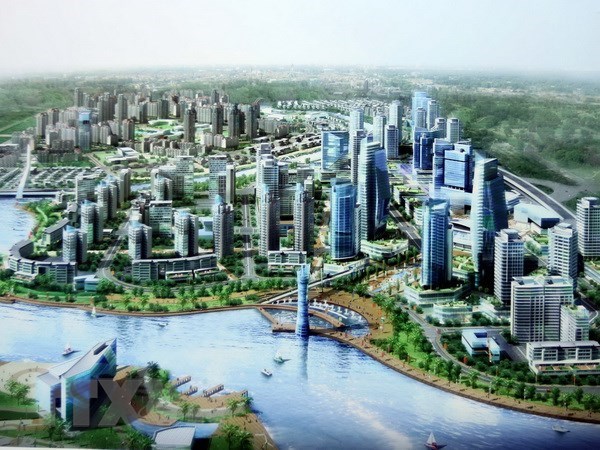Smart real estate to be future market trend: experts
The Prime Minister’s approval of a proposal on Vietnam’s smart city development to 2025 with a vision to 2030 will strongly affect the market and form a smart property trend, held experts at a conference in Ho Chi Minh City on August 11.
 Illustrative Image (Source: VNA)
Illustrative Image (Source: VNA) HCM City (VNA) – The Prime Minister’s approval of a proposal on Vietnam’s smart city development to 2025 with a vision to 2030 will strongly affect the market and form a smart property trend, held experts at a conference in Ho Chi Minh City on August 11.
President of the Vietnam Chamber of Commerce and Industry (VCCI) Vu Tien Loc said that recently, foreign investors have made strong investment in domestic real estate market due to their strength in capital, technology and management capacity.
However, he held that domestic firms have advantages in understanding the local law and culture, suggesting that foreign and domestic businesses should cooperate for mutual development.
Smart real estate is not a playground for short-term business, he stressed.
Representatives from the Housing and Property Market Management Agency under the Ministry of Construction asserted that smart city is a development trend of the real estate market in the future with the formation of online trading floors as well as the application of automation inside apartments.
Ngo Dong Hai, deputy head of the Party Central Committee’s Economic Commission said that in the rise of the fourth industrial revolution, the majority of Vietnam’s smart cities are young urban areas in scale and development level.
Hai said that the demand of people has become increasingly diverse, thus businesses should thoroughly grasp their needs.
He highlighted the need for combination of FDI firms’ strength in capital, technology and management capacity with the law and culture understanding of domestic enterprises in the formation and development of smart urban areas, houses and residential areas as well as the solving of traffic, energy and environment problems.
Nguyen Hoang Minh, Vice Director of the State Bank of Vietnam’s Ho Chi Minh City branch noted that by the end of July this year, the banking sector has lent 208 trillion VND to the real estate sector.
In the recent five years, real estate credit expanded 11.5 percent each year, he said, adding that remittance and FDI poured to the sector have also reduced pressures for banks.
In the recent three years, foreign remittance sent to Ho Chi Minh City was 5-5.5 billion USD each year, of which, 21 percent was invested in real estate.
Phan Truong Son, head of the Housing and Property Market Office of Ho Chi Minh City revealed that in the next 10-15 years, the city will focus on developing smart urban areas and green architecture adaptable to climate change, while the social housing and apartment buildings will continue to be expanded.-VNA












